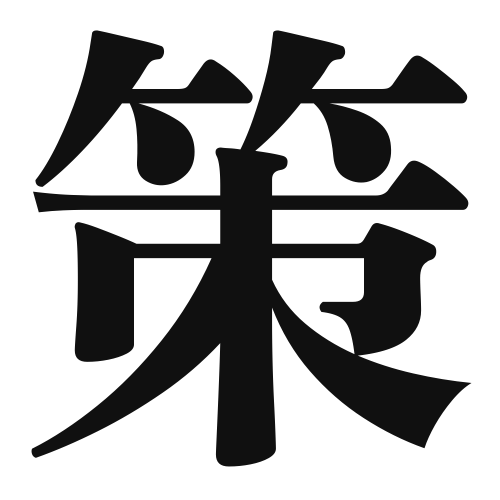1. Overview of Meaning
The kanji “策” (saku) generally means “plan,” “strategy,” or “measure.” It is often used in contexts related to planning and decision-making.
2. Formation and Radical
Formation of the Kanji: The kanji “策” is a compound character (会意文字) that combines elements to convey its meaning. It consists of the radical for “bamboo” (竹) on the left, which is associated with flexibility and adaptability, and the character “sa” (左), which can imply direction or method.
Radical: The radical of “策” is 竹 (bamboo), indicating its connection to strategies that are flexible and adaptable, much like bamboo itself.
3. Examples of Usage
Common Words and Phrases: Some frequently used words that include “策” are:
- 戦略 (senryaku) – strategy
- 政策 (seisaku) – policy
- 対策 (taisaku) – countermeasure
Example Sentences in Daily Conversation:
- 新しいビジネス策を考えています。 (I am thinking of a new business plan.)
- この問題に対する対策が必要です。 (We need a countermeasure for this problem.)
4. Synonyms and Antonyms
Similar Kanji: A similar kanji is “計” (kei), which means “to measure” or “to plan.” While both involve planning, “策” often implies a broader strategy, whereas “計” focuses more on calculations or measurements.
Antonyms: An antonym for “策” could be “無策” (musaku), which means “lack of a plan” or “no strategy,” indicating a state of unpreparedness.
5. Cultural and Historical Background
Relation to Japanese Culture: The concept of “策” is deeply embedded in Japanese culture, especially in areas such as business and politics, where strategic planning is crucial for success.
Proverbs and Idioms: One relevant proverb is “策を練る” (saku o neru), which means “to devise a plan,” emphasizing the importance of careful planning in achieving goals.
